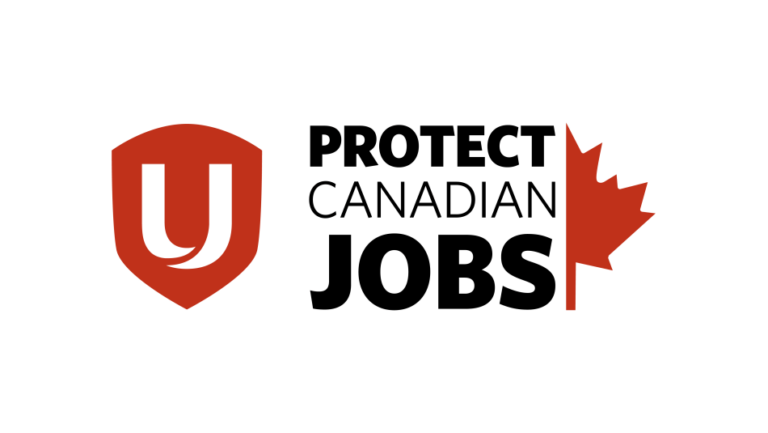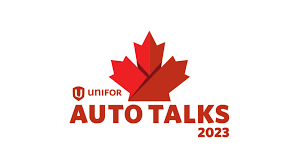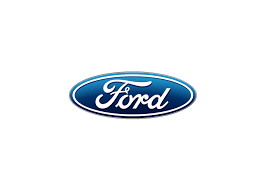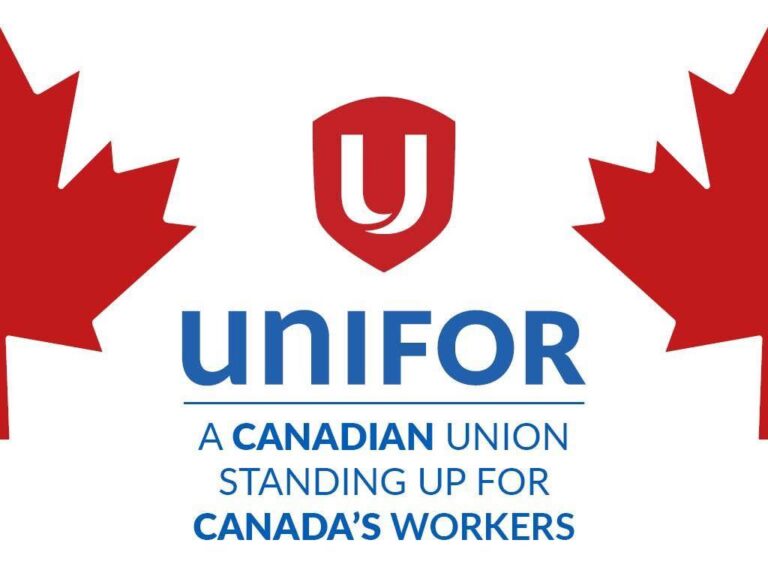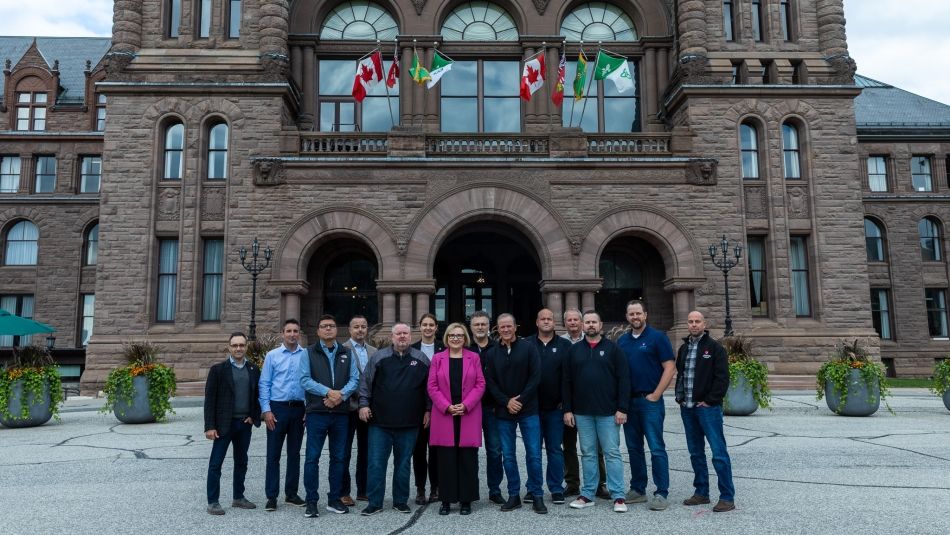
A delegation of Unifor auto leadership, led by Unifor National President Lana Payne, (which included our Local 707 OAC Plant Chairperson/ Vice Chair of Ford Council Jason Del Buono and National Staff Rep Marc Brennan) met with Premier Doug Ford on October 14 to discuss escalating U.S. trade threats, punishing tariffs on Canadian-made vehicles, and the urgent need for a coordinated national strategy to defend Canadian auto jobs.
“America is bold enough that the U.S. Commerce Secretary has said out loud that the Trump administration’s goal is the elimination of assembly plants in Canada. We need an equally bold, coordinated Team Canada approach to fight back,” said Payne.
Unifor’s auto sector leaders from across Ontario, representing members at General Motors, Ford, and Stellantis, met internally in Toronto ahead of the meeting with the Premier. Discussions focused on the growing U.S. threat to Canadian assembly plants, the importance of leveraging Canada’s full economic power to protect jobs, and rising concerns that Ottawa may pursue quick, sector-specific trade deals in steel, aluminum, and energy without a unified plan to safeguard other critical industries, including auto.
“We can’t allow Trump to pit sector against sector,” Payne emphasized. “To defend sectors under attack, auto, forestry, and others, Canada can’t negotiate side deals on goods the U.S. desperately needs for it industrial economy. Those are leverage points. If we give them away, we’ll have less left to bargain with.”
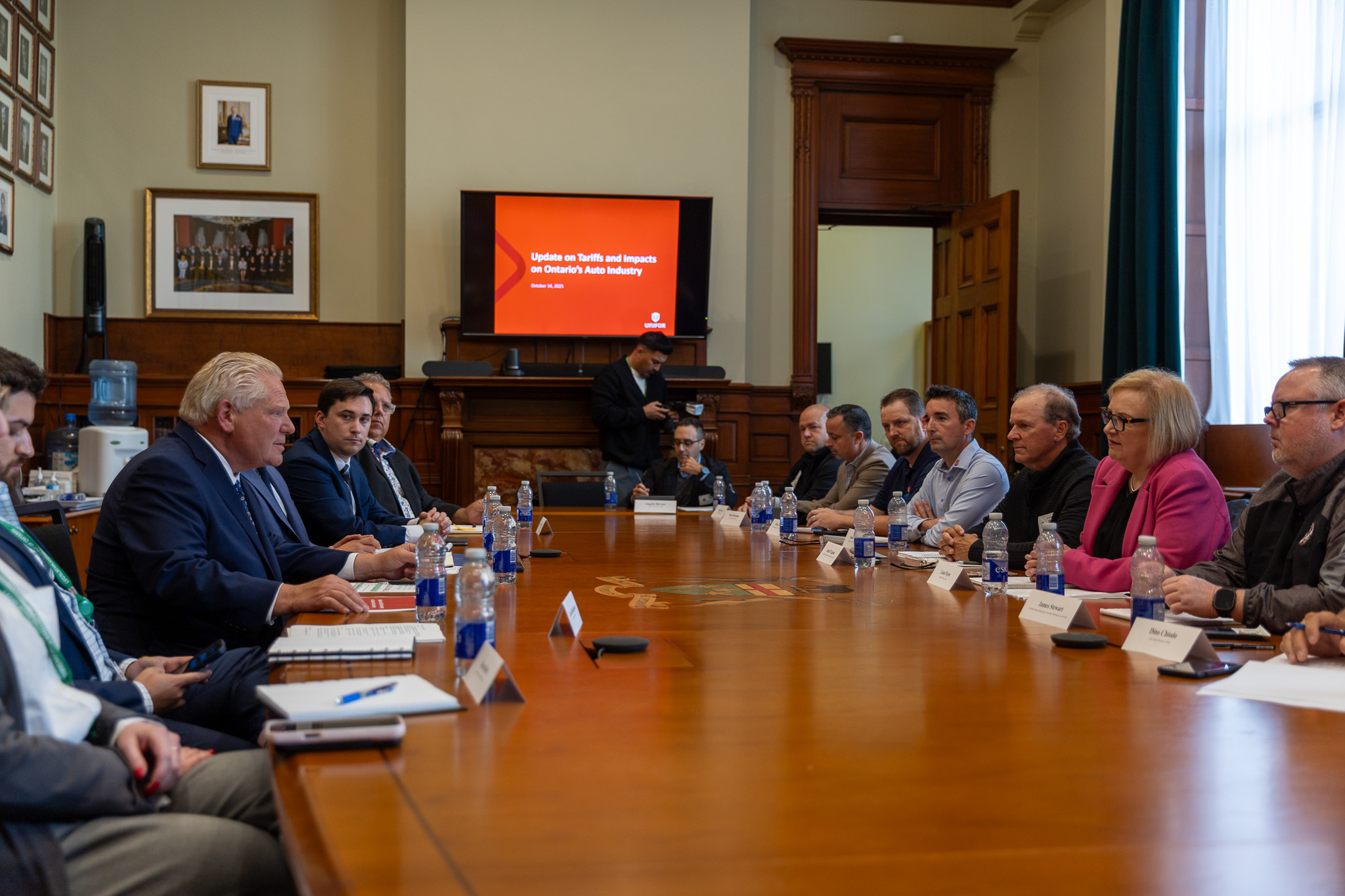
The union also discussed how both the U.S. and China are using trade policy to pit Canadian regions and workers against one another. China recently linked Canada’s tariffs on Chinese electric vehicles to retaliatory tariffs on Canadian exports such as canola and seafood.
“China demands that companies that sell there produce there, but that’s not a two-way street,” said John D’Agnolo, Chairperson of the Unifor Auto Council. “Canada’s EV tariffs are a legitimate defense against unfair trade practices. China’s overproducing EVs made with cheap labour, and if Canada lifts those tariffs, it will wipe out our auto industry. Now China is using that tariff protection as a weapon against our fellow workers in other sectors.”
Moments after the Unifor delegation’s meeting with Premier Ford concluded, a scenario long warned about became reality: Stellantis announced it will invest more than $600 million to reopen its Belvidere Assembly Plant in Illinois, shifting production of the Jeep Cherokee and Jeep Compass, vehicles originally slated for Brampton Assembly Plant, to the United States.
“This is exactly what we feared,” said James Stewart, Chairperson of the Unifor–Stellantis Master Bargaining Committee. “Canadian workers shouldn’t pay the price for trade politics. Stellantis needs to honour its commitments to Canadian production and workers.”
An emergency meeting of the Unifor Stellantis Council will be held on Friday, October 17 to determine next steps.
General Motors has also announced it will eliminate the third shift at Oshawa Assembly Plant, shifting more production south of the border.
“This is a dangerous pattern,” warned Trevor Longpre, Chairperson of the Unifor GM Council. “Our members have done everything right, invested, retooled, delivered quality vehicles, and now their jobs are on the line because of U.S. protectionism.”
Payne stressed that if the U.S. succeeds in stripping auto jobs from Canada, the impact will ripple across the entire economy.
“The auto industry is the target today, but the entire industrial economy of Canada could be next,” said Payne. “If we’re not going to stand up as a nation for the more than 150,000 direct jobs and half a million Canadians who depend on this industry, what are we going to stand up for in this trade war? The resolve of the nation right now has to be that we will defend auto—and every sector under attack.”

